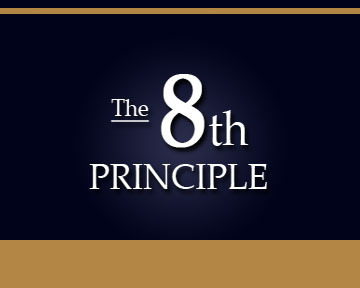An eighth principle would be a welcome and needed entry to the brilliant seven as created in 1997 by the North Carolina State University’s Center for Universal Design. Rather than only define the environment of a user, this eighth principle would address perception; those shared by the observer and the observed. How do we see others and how do they see us? Can we build in a way that levels the perceptual playing field in which all players are seen as equal?
I was recently asked if the New York City subways should be cleaner. As a life long resident of New York, I balked at this absurd notion. I adore our grittiness. This is my rough, nasty and harsh city and nobody is supposed to clean it up. A grimy subway was normal and it was a stable measure of our urban humanity. If you showed up dirtier than the subway, you were really a mess. If you took a few minutes to clean up, you were already better than most. And if you dressed sharp, you were king – something to be looked at and admired. That’s me; I like to look good. The subway made me look good with little effort. Clean it up and my habits and standards would appear to be lower. Pretty silly, eh? But don’t we all play such silly games? You have a look; it’s your look. You like and maintain that look. You measure how you look against how others look; you make judgments of yourself and of others. You wear sweaters or jackets; buttoned shirts or t-shirts. They are reflections of your identity and they are the image you wish to project; cloths make the man.
But suppose one morning you woke up, slumbered over to your closet and discovered not a stitch of familiar cloths. In your closet were cloths that were the wrong color, the wrong material, the wrong look and fit. Now what? You can’t go out naked so you dress with what’s there. You head out into a world completely unsure of yourself. Everything is wrong. You don’t fit in. Friends all wonder what happened to you. People react differently, better or worse. How you see yourself and how others see you has been altered simply by cloths different from those you would normally wear.
This example of dress is a metaphor for the design of our homes, cities and products and how we “fit” in them. If we feel comfortable, the experience is positive, if not, the experience is negative – it all goes wrong and we feel as if we are not seen, heard or understood. The judgments we naturally make are awry; we feel judged by ourselves and by others.
The eighth principle would acknowledge the importance of equal perception. A universally designed environment would be like familiar cloths and would support positive perceptions by others and of ourselves. We would appear and feel equal as we face daily challenges. There would be no moments when an environment or product puts us in a place where we are perceived as different.
Come back next week for part II of the 8th Principle.
Konrad Kaletsch
Universal Design Resource
Universal Design Network at Facebook and LinkedIn
Take the 10-question survey!

